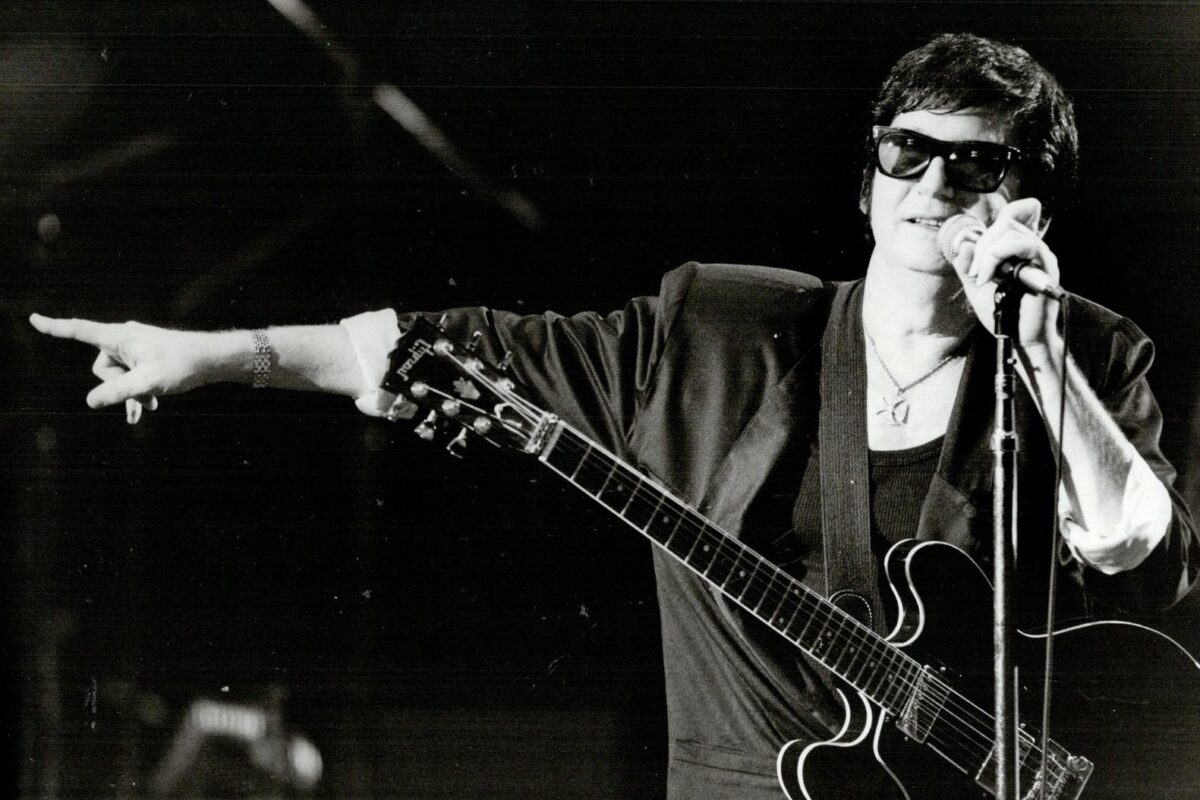Pop/Hip Hop/R&B
10 Best Roy Orbison Songs of All Time
Roy Orbison, the enigmatic voice behind some of the most iconic songs in rock and roll history, captivated generations with his haunting vocals, dramatic ballads, and heart-wrenching lyrics. Known for his signature dark sunglasses and unmatched falsetto, Orbison’s music continues to resonate with fans decades after his passing. His ability to convey raw emotion—whether expressing the depths of despair or the heights of romance—made him a groundbreaking figure in the industry. From the early days of rockabilly to his resurgence in the ’80s, Orbison’s sound remained timeless, influencing countless artists across genres.
In this article, we’ll dive into the top 10 most popular Roy Orbison songs of all time—tracks that have defined his legacy and cemented his place as one of the greatest voices in music history. Whether it’s the yearning plea of “Crying” or the infectious joy of “Oh, Pretty Woman,” each of these classics showcases Orbison’s unmatched ability to blend rock, country, and pop into something uniquely his own. So, sit back and get ready to revisit the unforgettable tunes that made Roy Orbison a legend, and discover why his music still resonates with listeners around the world today.
1. Oh, Pretty Woman (1964)
Released in 1964, “Oh, Pretty Woman” remains one of Roy Orbison’s most iconic songs, captivating listeners with its unforgettable guitar riff and catchy chorus. Written in collaboration with his songwriting partner Bill Dees, the track was inspired by a casual conversation about a beautiful woman they saw walking by. This simple encounter led to the creation of a song that resonated with audiences around the world. “Oh, Pretty Woman” captures the excitement and admiration one feels upon seeing someone truly captivating, expressing this moment with playful lyrics and a lively beat. Orbison’s rich voice, blending strength and vulnerability, added depth to the song, making it a standout in the pop-rock genre. Quickly climbing to #1 on the Billboard Hot 100, the song became a massive hit, not only in the United States but internationally, establishing Orbison as a major player in rock history. Its appeal endures, with “Oh, Pretty Woman” often celebrated as one of the quintessential tracks of the ’60s, a testament to both Orbison’s talent and the universal experience of admiration and infatuation.
2. Crying (1961)
Roy Orbison’s “Crying,” released in 1961, remains a deeply moving ballad that showcases his unmatched vocal range and ability to convey heartache. Written with Joe Melson, the song emerged from Orbison’s reflections on lost love, telling the story of a man overcome by sorrow after seeing a former lover. The powerful, soaring falsetto in the chorus captures the intense pain of unrequited love, while the verses gradually build up the emotion, giving listeners a visceral experience of heartbreak. “Crying” reached #2 on the Billboard Hot 100 and solidified Orbison’s reputation as a master of emotional ballads. The song’s haunting melody, coupled with Orbison’s vulnerable, expressive vocal delivery, continues to resonate with listeners to this day. Many artists, including Don McLean, have covered the song, drawn to its timeless appeal and emotional depth. “Crying” is more than a song; it’s an exploration of human sorrow, reminding listeners of the emotional complexity that accompanies lost love.
3. Only the Lonely (1960)
Released in 1960, “Only the Lonely” marked Roy Orbison’s breakthrough moment, transforming him from a lesser-known artist into an international sensation. Co-written with Joe Melson, the song’s haunting, melancholic melody speaks to the deep isolation and yearning that come with unfulfilled love. Orbison’s vocal delivery, featuring operatic highs and intense, emotional lows, brought a new dramatic flair to rock and roll. The song’s unique blend of rock, pop, and classical influences set Orbison apart, creating a sound that was both revolutionary and deeply moving. “Only the Lonely” climbed to #2 on the US charts and gained global popularity, establishing Orbison as one of the leading voices of the emerging rock and roll scene. With its poignant lyrics and Orbison’s passionate performance, the song struck a universal chord, resonating with listeners from all walks of life and earning its place as one of the defining songs of the early 1960s.
4. In Dreams (1963)
“In Dreams,” released in 1963, showcases Roy Orbison’s unique ability to transport listeners into a dreamlike state through music. Unlike traditional song structures, “In Dreams” unfolds as a narrative without a repeating chorus, following a dynamic journey of tempo and emotion. Orbison begins softly, singing about a dream where he reunites with a lost love, creating a soft, ethereal mood that gradually builds into an emotional crescendo. The song’s shifting tones and complex arrangement make it feel almost like a mini-drama, pulling the listener along as Orbison’s voice rises in intensity. “In Dreams” gained new recognition in the 1986 film Blue Velvet, where its haunting quality perfectly complemented the movie’s surreal atmosphere. Today, “In Dreams” remains a fan favorite, loved for its imaginative structure and ability to evoke deep feelings of longing and nostalgia, making it a timeless piece in Orbison’s catalog.
5. You Got It (1989)
Roy Orbison’s 1989 hit “You Got It” stands as a triumphant return to the music scene, marking his resurgence after years of personal and professional challenges. Written with the help of Jeff Lynne and Tom Petty, the song was released posthumously, following Orbison’s sudden passing in 1988. “You Got It” is an upbeat, optimistic love song with a catchy melody, capturing Orbison’s classic sound while appealing to the contemporary ’80s audience. The song highlights his signature vocal style, mixing strength and sensitivity, showing that even after years away from the spotlight, his voice remained powerful and distinctive. “You Got It” reached #9 on the Billboard Hot 100, proving that Orbison’s music was still resonant with listeners and relevant in the modern era. The song is often celebrated as a fitting tribute to Orbison’s legacy, blending the spirit of his early work with a renewed sense of hope and joy, making it a beloved addition to his catalog.
6. Running Scared (1961)
“Running Scared,” released in 1961, is one of Roy Orbison’s most suspenseful and dramatic ballads, telling the story of a man filled with apprehension as he fears the return of his lover’s former partner. Co-written with Joe Melson, the song starts softly, with a slow, tense build, as Orbison’s voice intensifies until it reaches a climactic and powerful ending. The orchestral arrangement mirrors this progression, amplifying the sense of urgency and vulnerability in the lyrics. With no chorus and an unusual structure, “Running Scared” feels more like a short opera than a conventional pop song. The song reached #1 on the Billboard Hot 100, underscoring Orbison’s ability to evoke complex emotions and create suspense in his music. Its unique composition and emotional depth make it one of Orbison’s most memorable and enduring hits, highlighting his talent for storytelling through song.
7. Blue Bayou (1963)
Released in 1963, “Blue Bayou” is a soulful, evocative ballad that transports listeners to a serene, peaceful place far removed from the worries of the world. The gentle melody and wistful lyrics reflect Orbison’s ability to create vivid scenes through his music, conjuring the image of an idyllic bayou where one can find solace and escape. The song became a major hit for Orbison, showcasing his unique style, which seamlessly blends elements of pop, country, and rock. Linda Ronstadt famously covered “Blue Bayou” in the 1970s, bringing the song to a new generation, but Orbison’s original version remains a timeless classic. His tender, heartfelt delivery and the song’s soothing rhythm have made “Blue Bayou” a fan favorite, a track beloved for its comforting, nostalgic quality and its gentle reminder of the power of music to transport us to a place of peace.
8. It’s Over (1964)
“It’s Over,” released in 1964, is one of Roy Orbison’s most emotionally charged songs, capturing the finality and pain of a relationship ending. The song’s dramatic arrangement, complete with swelling strings and Orbison’s soaring vocals, conveys an intense sense of loss and resignation. As Orbison’s voice rises to new heights, the song builds to a powerful climax, reflecting the depth of sorrow in saying goodbye. “It’s Over” became a major hit, reaching #1 in the UK and climbing the charts in the United States. Its poignant lyrics and Orbison’s masterful performance showcase his unique ability to capture and convey complex emotions, solidifying his reputation as a master of ballads that touch the heart. “It’s Over” remains a poignant reminder of the bittersweet emotions that accompany love and loss, making it one of Orbison’s most powerful songs.
9. Dream Baby (How Long Must I Dream) (1962)
Released in 1962, “Dream Baby (How Long Must I Dream)” brought a playful, upbeat edge to Roy Orbison’s catalog. Written by country songwriter Cindy Walker, this rockabilly-influenced track stands out from Orbison’s more melancholic ballads, with a lively tempo and infectious energy. The song’s lyrics convey a sense of longing for a loved one, yet the music maintains a fun, rhythmic drive that makes it hard not to dance along. “Dream Baby” quickly became a hit, reaching the top 10 in both the US and UK, and showcasing Orbison’s versatility as an artist. Its catchy melody and Orbison’s smooth, effortless vocal style make it a memorable entry in his body of work. “Dream Baby” continues to be celebrated for its upbeat vibe and Orbison’s charming delivery, adding a refreshing contrast to his more emotional ballads.
10. I Drove All Night (1987)
Recorded in 1987 and released posthumously in 1992, “I Drove All Night” is a powerful track that captures the passion and urgency of a lover’s determination. Written by Billy Steinberg and Tom Kelly, the song tells the story of a man who drives through the night to reunite with his beloved, expressing the lengths one will go for love. Orbison’s powerful vocals bring intensity to the song, giving it a sense of both longing and triumph. Though Cyndi Lauper’s version gained popularity in 1989, Orbison’s rendition stands out for its raw emotional power, adding a layer of timeless authenticity. “I Drove All Night” is a fitting conclusion to Orbison’s storied career, blending his classic sound with a touch of contemporary pop, making it one of his most exciting and enduring songs.
Source link

 Rolling Stones "Tattoo You" (40th Anniversary, Ltd. Ed.)
Rolling Stones "Tattoo You" (40th Anniversary, Ltd. Ed.) 
